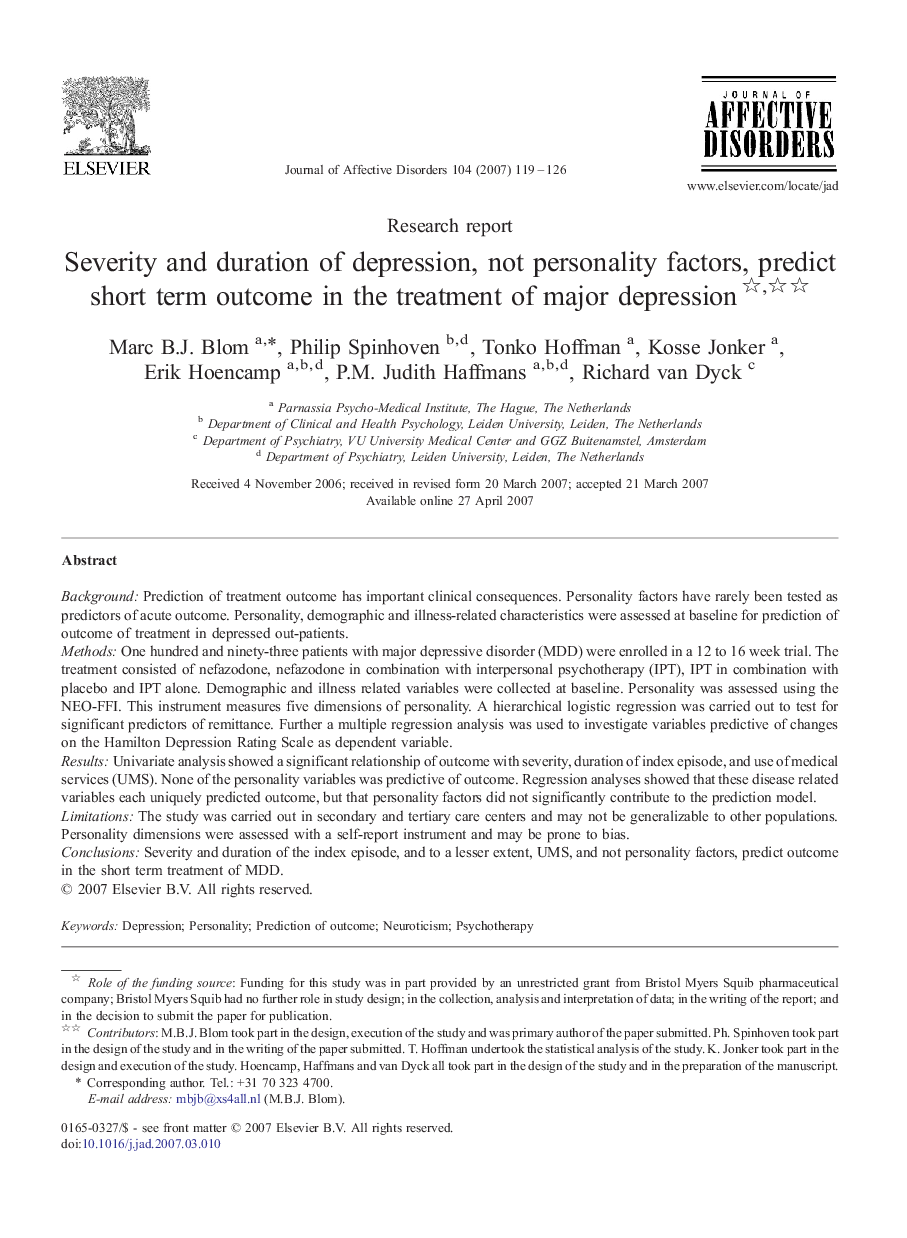| Article ID | Journal | Published Year | Pages | File Type |
|---|---|---|---|---|
| 4187365 | Journal of Affective Disorders | 2007 | 8 Pages |
BackgroundPrediction of treatment outcome has important clinical consequences. Personality factors have rarely been tested as predictors of acute outcome. Personality, demographic and illness-related characteristics were assessed at baseline for prediction of outcome of treatment in depressed out-patients.MethodsOne hundred and ninety-three patients with major depressive disorder (MDD) were enrolled in a 12 to 16 week trial. The treatment consisted of nefazodone, nefazodone in combination with interpersonal psychotherapy (IPT), IPT in combination with placebo and IPT alone. Demographic and illness related variables were collected at baseline. Personality was assessed using the NEO-FFI. This instrument measures five dimensions of personality. A hierarchical logistic regression was carried out to test for significant predictors of remittance. Further a multiple regression analysis was used to investigate variables predictive of changes on the Hamilton Depression Rating Scale as dependent variable.ResultsUnivariate analysis showed a significant relationship of outcome with severity, duration of index episode, and use of medical services (UMS). None of the personality variables was predictive of outcome. Regression analyses showed that these disease related variables each uniquely predicted outcome, but that personality factors did not significantly contribute to the prediction model.LimitationsThe study was carried out in secondary and tertiary care centers and may not be generalizable to other populations. Personality dimensions were assessed with a self-report instrument and may be prone to bias.ConclusionsSeverity and duration of the index episode, and to a lesser extent, UMS, and not personality factors, predict outcome in the short term treatment of MDD.
